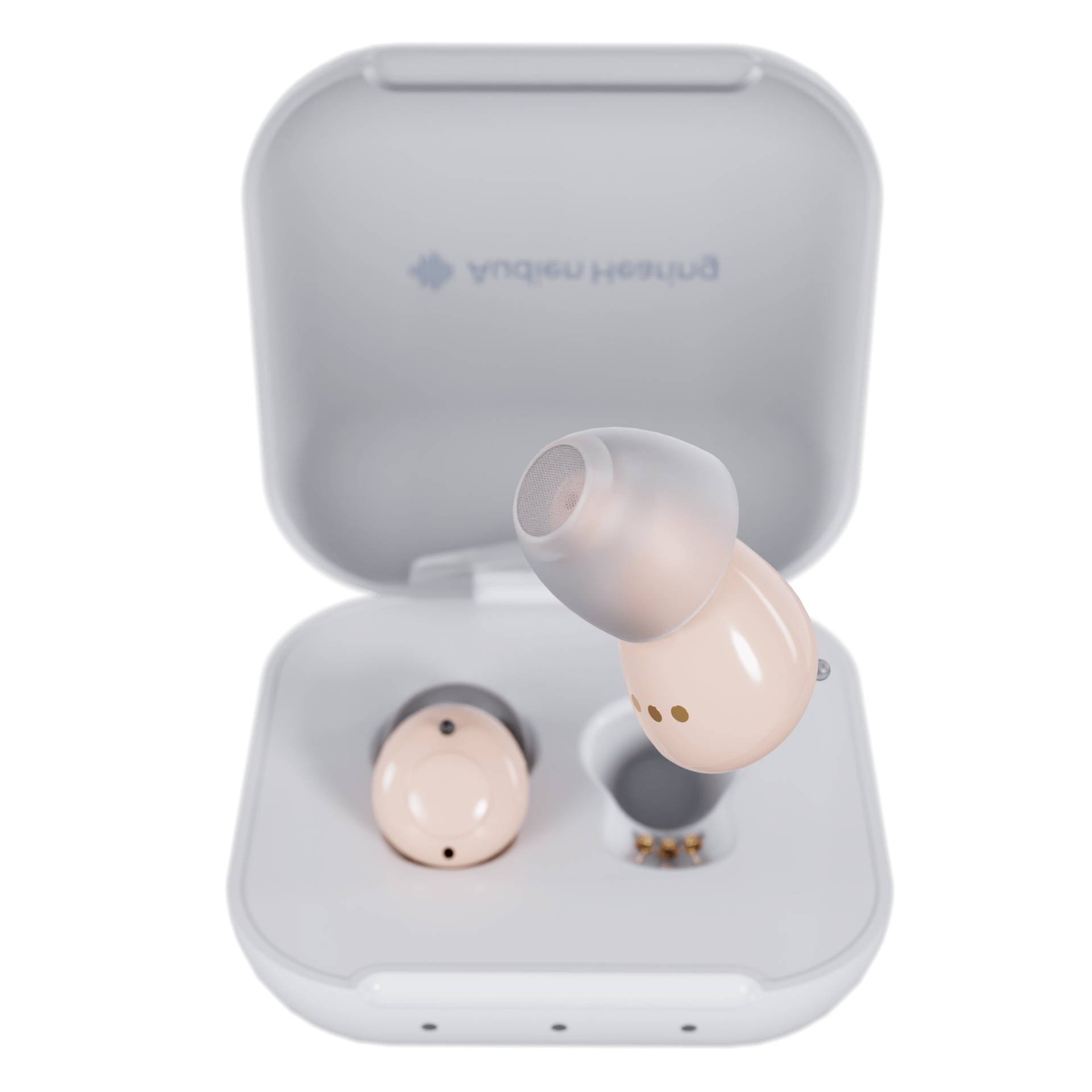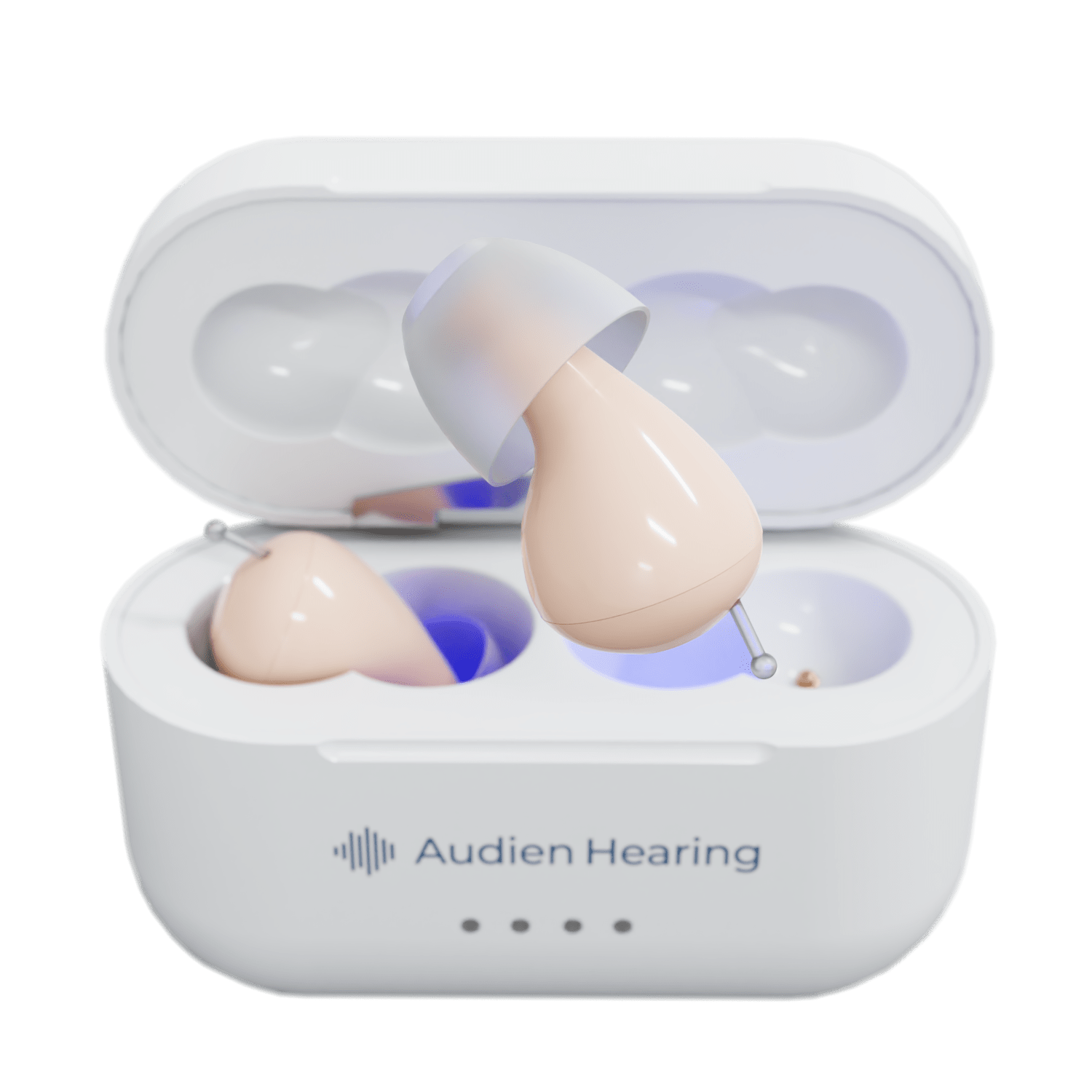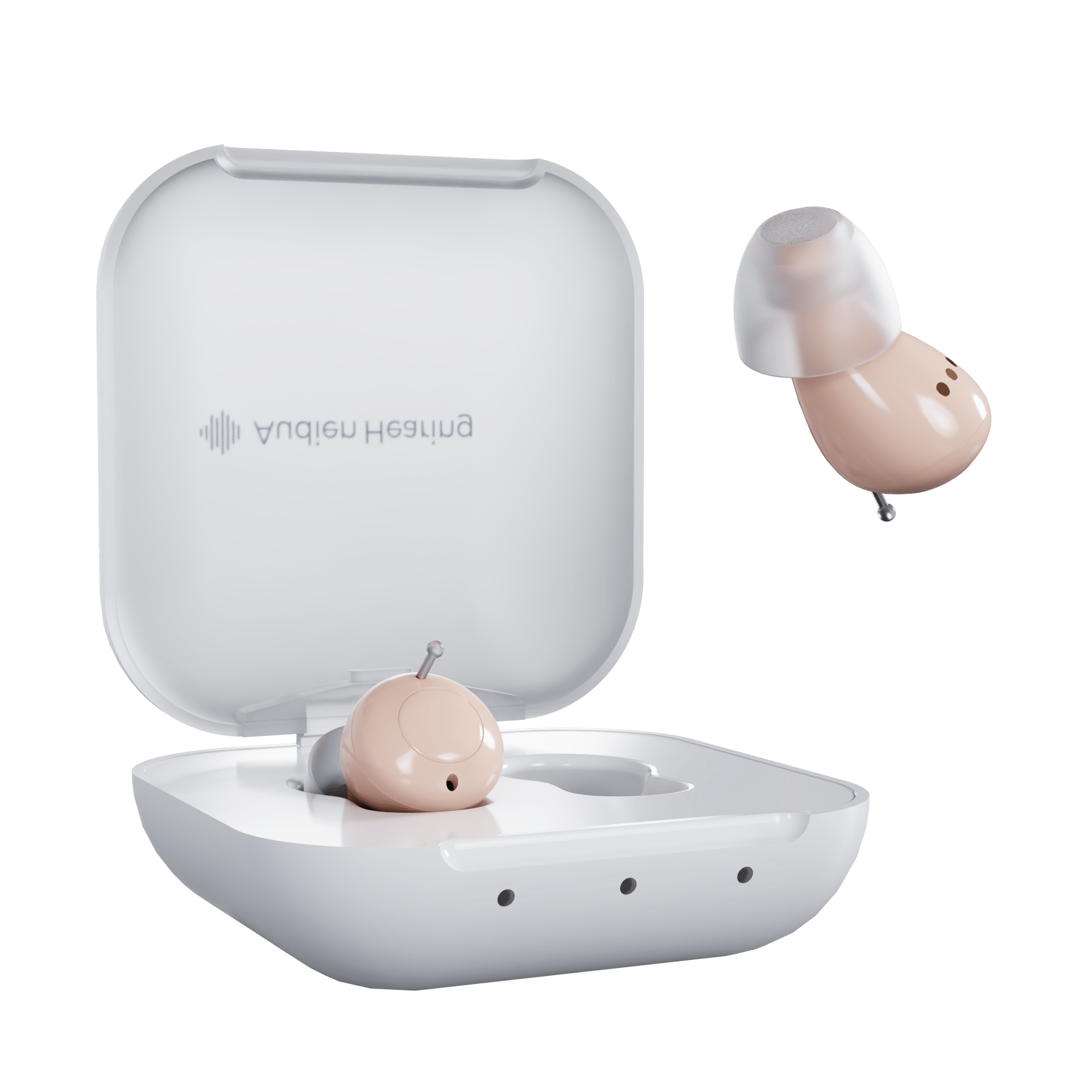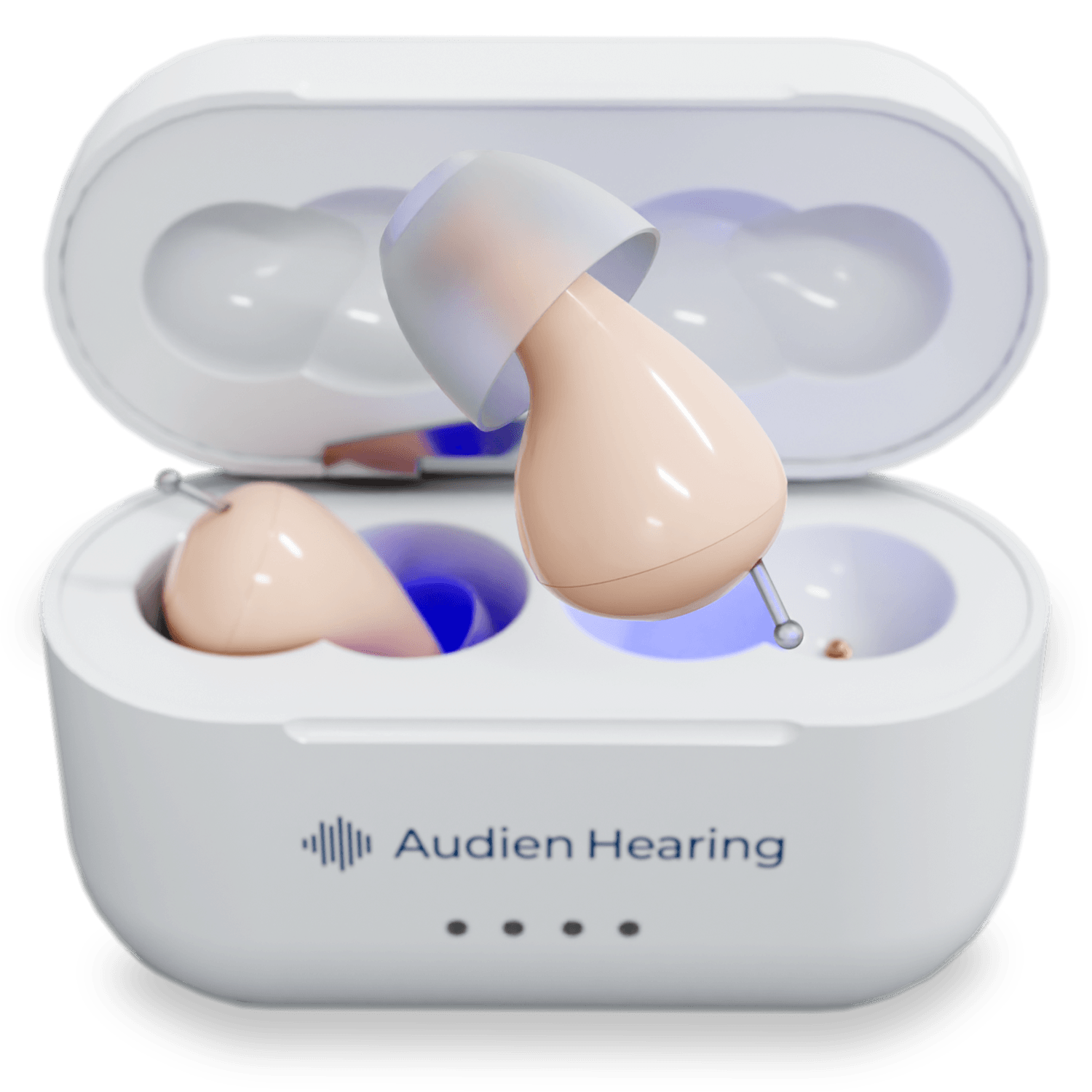We’ve all been there—your dog finds your favorite shoe, and suddenly, it’s a chew toy. Or your cat bats at anything small enough to catch its eye. Now, imagine what they might do with your hearing aids!
If you’ve got pets, you know that their curiosity knows no bounds. And while we love our furry friends, their playful nature can sometimes lead to problems, especially when it comes to keeping your hearing aids safe and sound.
Whether you’re a long-time hearing aid user or just getting started, understanding how to protect your devices from your pets is essential. Let’s dive into why your pets are so interested in your hearing aids and what you can do to keep them safe.

Why Are Pets So Interested in Hearing Aids?
Pets are naturally curious creatures, and hearing aids can be a fascinating (and unfortunately tasty) target. Here’s why:
1. Curiosity and Chewing
Dogs and cats are always exploring their environment, and anything small, new, or unfamiliar is bound to catch their attention. Your hearing aids, especially when left out in the open, might look like the perfect chew toy. The soft materials and small size make them easy to grab, and before you know it, your hearing aid could be in your pet’s mouth.
2. The Scent of Earwax
It might sound gross, but your pets love the smell of earwax. Earwax has a salty scent that can attract dogs and cats, leading them to snatch your hearing aids when you least expect it. They don’t see it as an expensive piece of technology—they see it as something that smells interesting and is worth investigating.

How to Protect Your Hearing Aids from Pets
So, what can you do to keep your hearing aids safe from curious paws and teeth? Here are some practical tips:
1. Safe Storage Is Key
When you’re not wearing your hearing aids, make sure they’re stored in a safe place. A high shelf, a closed drawer, or a sturdy case can keep your devices out of reach. If you’re prone to leaving things around, try to make it a habit to put your hearing aids away as soon as you take them out. This simple step can save you a lot of headaches—and a lot of money.
2. Invest in a Hearing Aid with A Pet-Proof Case
When you’re shopping for hearing aids, consider getting one with a pet-proof case to protect them. These cases are designed to be durable and difficult for pets to open or damage. Plus, they’re a great way to keep your hearing aids safe when you’re on the go.
3. Regularly Check Your Hearing Aids
Even if you’re careful, accidents can happen. Make it a habit to check your hearing aids regularly for any signs of damage. Look for teeth marks, missing pieces, or anything that seems off. If you notice something unusual, it’s better to get it checked out sooner rather than later.

Training Your Pet to Stay Away from Your Hearing Aids
Prevention is the best cure, and training your pets to avoid your hearing aids can go a long way. Here’s how to start:
1. Basic Commands
Teach your pets basic commands like “leave it” or “no” when they show interest in your hearing aids. Positive reinforcement works wonders—reward them with treats or praise when they follow your commands. Consistency is key, so make sure everyone in the household is on the same page.
2. Distraction Techniques
If your pet seems particularly interested in your hearing aids, try distracting them with something else. A favorite toy or a treat can quickly take their focus off your devices and onto something more appropriate.

What to Do If Your Pet Swallows a Hearing Aid
Pets are fast, and sometimes, despite our best efforts, they manage to get hold of something they shouldn’t. If your pet swallows a hearing aid, it’s important to act quickly.
1. Contact Your Veterinarian Immediately
If you suspect your pet has swallowed a hearing aid, don’t wait—call your vet right away. Hearing aids can cause choking or blockages in your pet’s digestive system, both of which can be serious.
2. Monitor Your Pet
Keep an eye on your pet for any signs of distress, such as vomiting, lack of appetite, or unusual behavior. These could be signs that something is wrong, and you’ll need to get them to the vet as soon as possible.
3. Consider Replacing the Device
If your pet damages or swallows your hearing aid, you’ll need to replace it. Fortunately, at Audien, we’re here to help with affordable replacement options to get you back to hearing your best as quickly as possible.

Conclusion: Keeping Your Pets and Hearing Aids Safe
We love our pets like family, and that’s why it’s so important to keep both them and our hearing aids safe. With a little precaution and some simple steps, you can enjoy the best of both worlds—happy, healthy pets and crystal-clear hearing.
If you’re worried about keeping your hearing aids safe from curious pets, the Atom 2 Series might be just what you need. With a durable case designed to protect your devices from life’s little accidents, you can rest easy knowing your hearing aids are secure.
Ready to protect your hearing aids and enjoy crystal-clear sound? Check out the Atom 2 Series today and keep those curious paws at bay!













